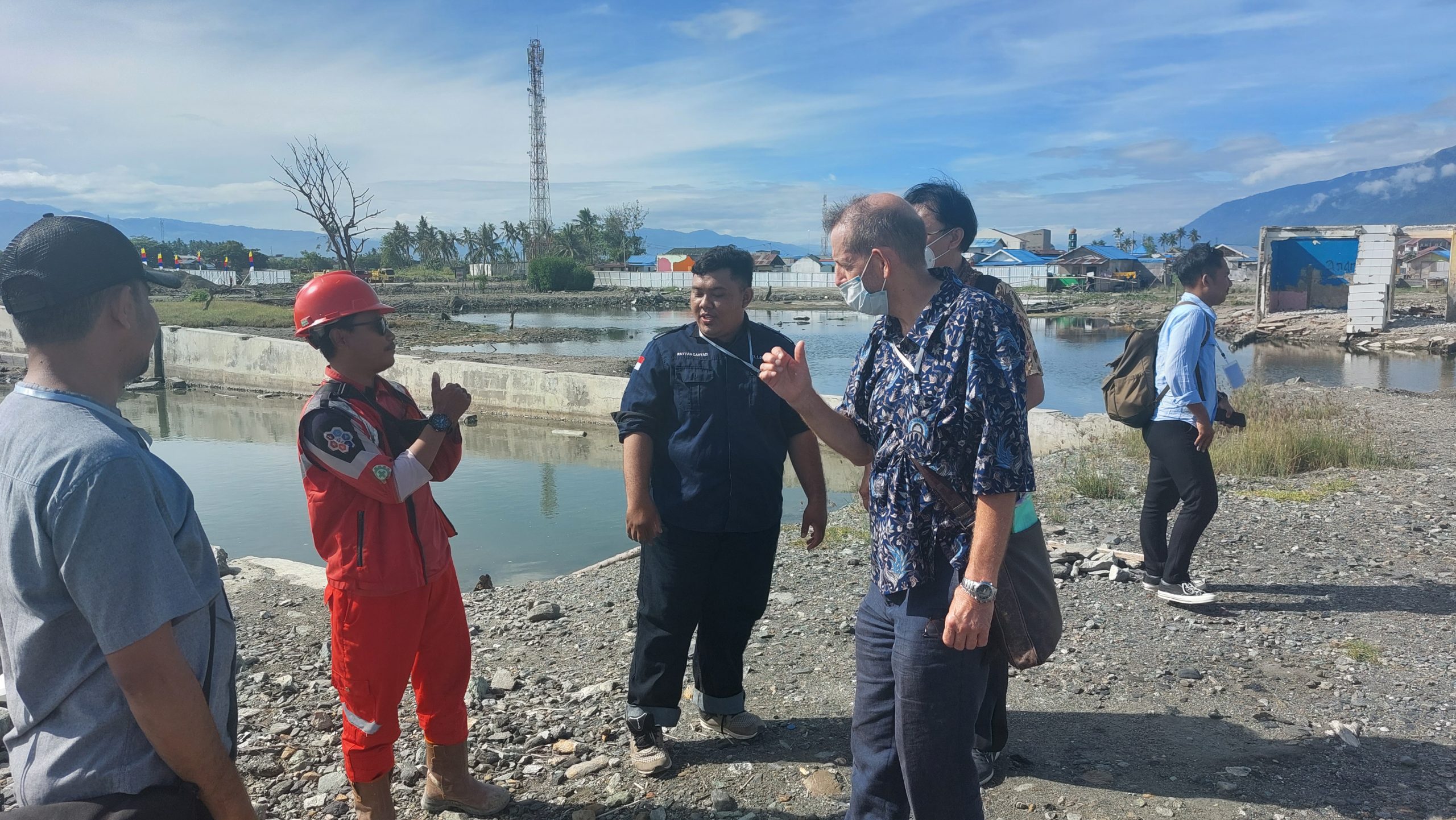The project has led to the creation of eight Centres of Excellence in Disaster Resilience and their formal embedding into institutional structures.
Cumulatively, the activities of the centres have led to a minimum of 28,243 interactions that will benefit diverse stakeholder groups.
The centres overall have created 34 full-time positions.
The centres have formed partnerships with diverse stakeholders to facilitate ongoing knowledge exchange for specific purposes. Cumulatively, these include 9 emergency organisations, 14 public sector organisations, 6 disaster aid organisations, 9 NGO, 7 communities and 4 businesses.
Since January 2020, a total of 10 incidents were responded to.
A total of 9 disaster drills were carried out involving 549 participants (59 staff, 416 students, 25 community members, 49 representatives of local businesses).
13+ Train the Trainer events took place to date, training 135 VR trainers which is over three times as many as anticipated.
266 volunteers were trained (70 staff, 60 students, 50 community members and 50 representatives of local businesses).
141 volunteers were deployed during 8 of 12 incidents that the centres collectively responded to.
34 virtual reality training events took place. These were attended by 116 members of staff (1.5 times as many as anticipated), 217 students (2.7 times as many as anticipated), 121 members of the community and 14 representatives of local businesses (cumulatively 1.7 times as many as anticipated), a total of 468 participants.
Individual centres carried out several addition training activities that were not anticipated in the original project proposal. These included the training of a total of 266 volunteers (70 staff, 96 students, 50 community members, 50 representatives of local businesses), and at least 16 further training events in relation to several aspect of disaster resilience. These events were attended by 120 members of staff, 436 students, 347 members of the community and 120 representatives of local businesses, a total of 1,023 participants.
A minimum of 10 disaster awareness campaigns were initiated with a total of 2,999 individuals targeted (279 staff, 1,520 students, 1,140 members of the community, 60 representatives of local businesses)
4 disaster alerts were issued in response to the Mamuju (2021) and Cianjur (2022) earthquakes and the Mt Semeru (2021) and Mt Merapi (2022) volcanic eruptions with a minimum of 5,394 individuals targeted.
16 disaster training innovations were recorded, cumulatively benefiting at least 1,287 individuals (308 staff, 837 students, 102 community members, 40 representatives of local businesses).
59 academic programmes have been updated using the BUiLD curriculum audit tool with 4,924 students impacted (7.4 times more than anticipated)
4 programmes have been created with 160 students impacted, with two more programmes to be introduced in the next three year.
110 internship opportunities across 28 internship partners and 116 volunteering opportunities across 5 partners have been created.
A multidisciplinary research network from across all project partners has been created and consolidated a minimum of 275 current and historic research outputs.
Partners have engaged in 21 disaster research and 4 knowledge transfer projects with a cumulative value of €74,064.
Since December 2019, a minimum of 9 community outreach activities were recorded.
15 fundraising campaigns were initiated to support communities affected by local disasters and the Covid-19 pandemic, whereby collective funds raised so far amount to €10,850.
Cumulatively, centres have partnered with 9 emergency organisations, 14 public sector organisations, 6 disaster aid organisations, 9 NGO, 7 communities and 4 businesses.
The BUiLD Disaster Resilience Network MaTTa Bencana has been established.
Last updated 02/08/2023

